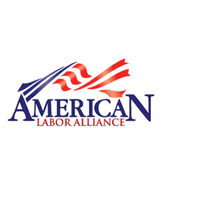
 The California attorney general’s office is urging a Fresno Superior Court judge to uphold the California Department of Insurance’s proposed $4.3 million penalty against American Labor Alliance and its alter ego Omega Community Labor Association. The fines are for selling a purported alternative to workers’ comp coverage and for operating without a license.
The California attorney general’s office is urging a Fresno Superior Court judge to uphold the California Department of Insurance’s proposed $4.3 million penalty against American Labor Alliance and its alter ego Omega Community Labor Association. The fines are for selling a purported alternative to workers’ comp coverage and for operating without a license.
The state is also defending the Department’s finding that ALA is a multi-employer welfare arrangement (MEWA) that is subject to state regulation. MEWAs are unable to obtain a permissive certificate to provide workers’ comp in California. Workers’ Comp can be provided only by an admitted carrier, through stand alone self insurance or though a self insurance group (SIG).
“ALA was acting in a capacity such that ALA violated Insurance Code sections 700 and 1631 by purporting to provide workers’ compensation insurance coverage policies to employers in California, and it violated section 742.23 by providing employee welfare benefits as a MEWA to California residents,” the state argues in a new court filing.
The penalty covers ALA’s operations for two years through its CompOneUSA product and the portion of the operations that were transferred to the alter ego Omega. Just under $1 million of the penalty is related to Omega’s operations, which MEWA officials say was established to take over ALA’s accounts when it was being shut down by the state. Omega continues to operate in defiance of its own CDI cease and desist order that it has appealed. A decision in that appeal is pending.
The penalty dispute is separate and distinct from a federal criminal complaint that is pending against ALA founder Marcus Asay and finance officer Antonio Gastelum. The U.S. Attorney’s office filed mail fraud and conspiracy charges against the pair over their operation of the fraudulent enterprise. Attorneys for the defendants and the federal government are also scheduled to meet early next month to review additional discovery issues and the status of the criminal case.
Suspect Financials
The state’s briefs take aim at a number of the claims raised by the MEWA as to why the enforcement action was unjust and the penalty too steep. Key among the latter was the MEWA’s claim that the penalty was disproportionate to its ability to pay.
“But ALA was purporting to write workers’ compensation coverage for agricultural workers – a group exposed to potentially high-risk dangers,” the state argues in its brief. It points out that farmworkers often incur catastrophic injuries that result in massive hospital bills and lifetime compensation awards. “If ALA is correct that the penalty could bankrupt ALA, it only shows that CDI’s regulatory concerns were well-founded,” the state says.
ALA is not a carrier and therefore has no coverage from the state’s backstop, the California Insurance Guarantee Fund.
The state points out that ALA was funded solely by member contributions and operated without any reinsurance. Testimony in Omega’s cease and desist hearing confirmed that it too is operating without any reinsurance coverage. The MEWA has collected the state surcharges for funding the California Insurance Guarantee Association, but it is not a member of CIGA and does not enjoy its coverage.
“Whatever product ALA was actually selling, ALA must have known that its clients believed they were purchasing legally sufficient workers’ compensation coverage. ALA also must have known that it could not legally purport to sell workers’ compensation coverage to anyone without a license from the Commissioner,” the state notes in its brief. “ALA continued these same activities in the name of another company, Omega, to provide its clients with ‘seamless’ coverage even after the Commissioner ordered ALA to cease and desist violating the law. The petitioner’s challenges to the penalties are without merit, and their petition should be denied in its entirety.”
The Fresno court judge on the case is scheduled to rule on the penalty and the state’s enforcement action by mid-December. The decision will be based on the briefs filed in the case, and there will be no formal trial.

